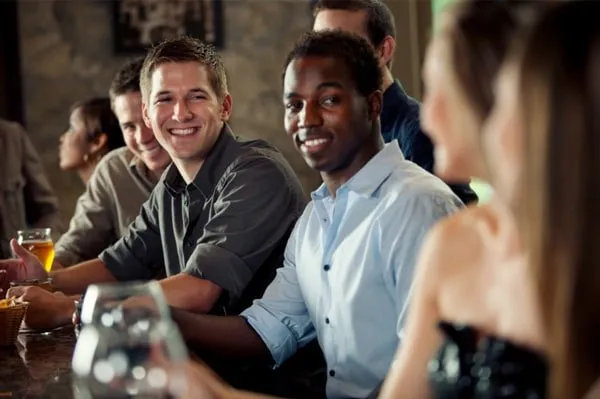We've never had so many options to find anyone. So why is this getting harder and harder?
In one of the scenes from the film "A Beautiful Mind," mathematician John Nash (played by Russell Crowe) is at the bar with four colleagues when five young women enter. The balance is perfect. The problem? Everyone wants the same girl, a captivating blond with green eyes. Nash's friends cite Adam Smith, the father of modern economics. "In a competition, individual ambitions serve the common good." Nash hesitates, does not seem convinced. "Adam Smith has to be reviewed.If we all go after the blonde, we're going to block ourselves, none of us will ever be able to conquer her. Then we will go to her friends and they will turn their backs on us, because no one likes to be the second choice". The mathematician proposes another approach." But what if no one approaches the blonde? Adam Smith's theory was incomplete. "The best result for the group happens when each part does what is best for itself. Group, "he explains.
Psychologist Barry Schwartz called it "the paradox of choice", this freedom of choice does not make us freer or happier, but rather increases our dissatisfaction. Always eager to find something better, we become experts in the inability to make our decisions, to step forward, to risk. We almost need Excel to remember the data of all the people we know on Tinder or Facebook.
Much because of social networks, we never had so many opportunities to be happy: that woman we always admired is at a distance from a Facebook message, love can be born from a match in Tinder, or even Linkedin, a network of contacts professionals. The possibilities have multiplied as never before, and yet if we talk to single people we realize that it has not been easier to find the person we are looking for.
How can we explain that, in an age where sex is as accessible as a McDonald's burger, young adults practice it less than the generations that preceded it, as several studies point out? We've been so entertained to accumulate matches in Tinder, or to jump from window to window on Facebook, that we forget that there's a world out there. We have so many opportunities to be happy, for a night or a life, and boycott ourselves.
We have not learned anything from Nash.
References:


